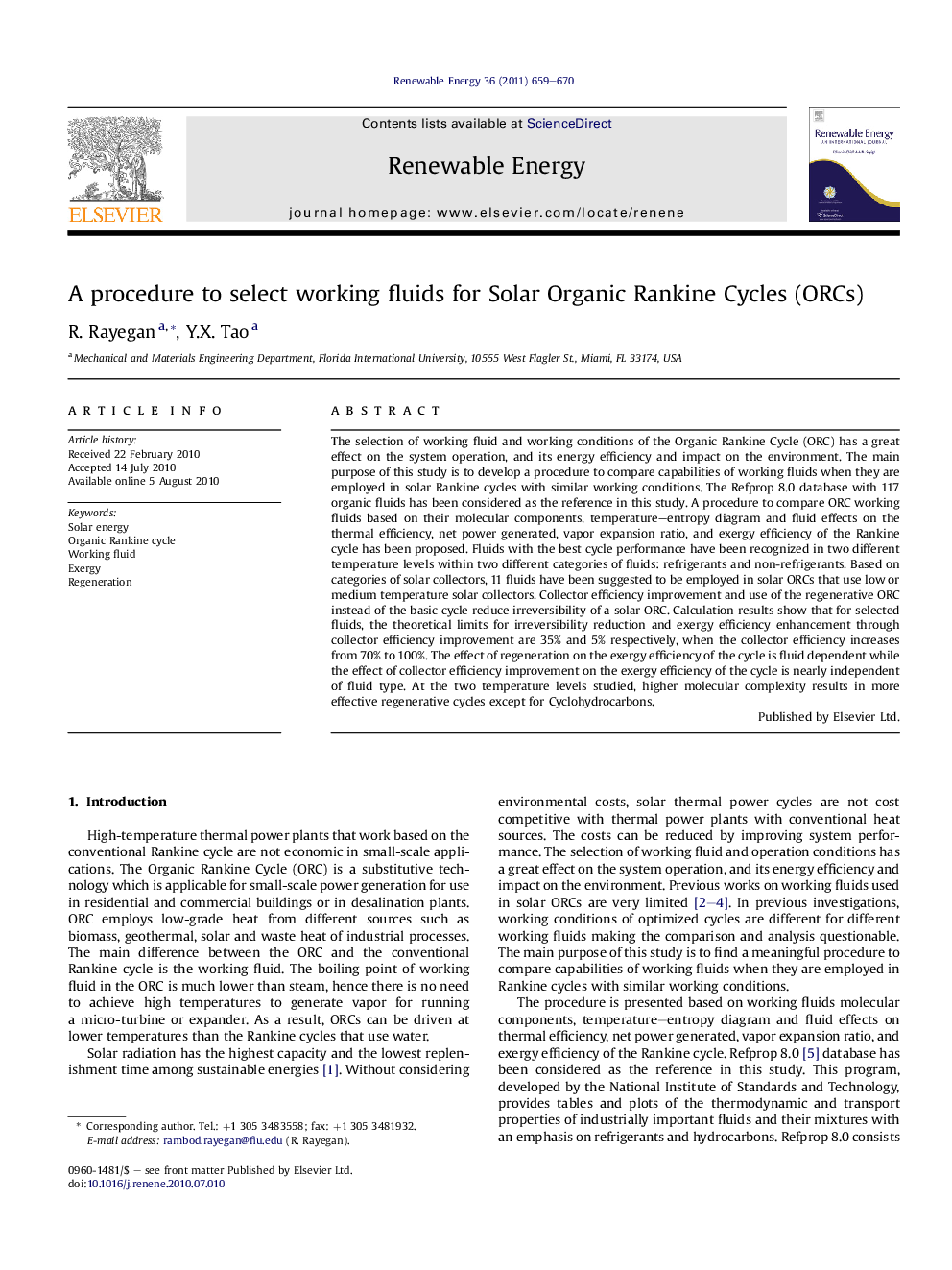| کد مقاله | کد نشریه | سال انتشار | مقاله انگلیسی | نسخه تمام متن |
|---|---|---|---|---|
| 301632 | 512511 | 2011 | 12 صفحه PDF | دانلود رایگان |

The selection of working fluid and working conditions of the Organic Rankine Cycle (ORC) has a great effect on the system operation, and its energy efficiency and impact on the environment. The main purpose of this study is to develop a procedure to compare capabilities of working fluids when they are employed in solar Rankine cycles with similar working conditions. The Refprop 8.0 database with 117 organic fluids has been considered as the reference in this study. A procedure to compare ORC working fluids based on their molecular components, temperature–entropy diagram and fluid effects on the thermal efficiency, net power generated, vapor expansion ratio, and exergy efficiency of the Rankine cycle has been proposed. Fluids with the best cycle performance have been recognized in two different temperature levels within two different categories of fluids: refrigerants and non-refrigerants. Based on categories of solar collectors, 11 fluids have been suggested to be employed in solar ORCs that use low or medium temperature solar collectors. Collector efficiency improvement and use of the regenerative ORC instead of the basic cycle reduce irreversibility of a solar ORC. Calculation results show that for selected fluids, the theoretical limits for irreversibility reduction and exergy efficiency enhancement through collector efficiency improvement are 35% and 5% respectively, when the collector efficiency increases from 70% to 100%. The effect of regeneration on the exergy efficiency of the cycle is fluid dependent while the effect of collector efficiency improvement on the exergy efficiency of the cycle is nearly independent of fluid type. At the two temperature levels studied, higher molecular complexity results in more effective regenerative cycles except for Cyclohydrocarbons.
Journal: Renewable Energy - Volume 36, Issue 2, February 2011, Pages 659–670